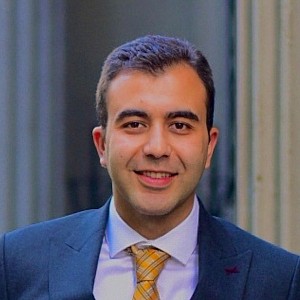
Ehsan Nouri
Areas of interest
My focal research addresses how social media applications can enable unstructured groups of people (e.g., strangers) to self-organize solely by means of digital communication and without any pre-defined role or instructions. The application of this research is primarily for volunteer groups during disaster relief.
I noticed this need by observing how social movements can benefit more from social media in terms of arranging and organizing their collective action. My inspiration came from the active online involvement of people during the “Woman, Life, Freedom” uprising in Iran in 2022.
Collective patterns of online behavior can reveal exciting facets of individual and societal dynamics, as well as technological design. Particularly, my current research findings can apply to several applications, including disaster relief and social movements, potentially saving lives and creating hope.
Disasters happen every day in the world, and volunteers are always at the forefront. Understanding how social media can mobilize these volunteers and bring them together effectively can be crucial in times of urgency and uncertainty. The substantial benefits this research can provide to the world keep my excitement levels up.
Biography
I started my undergraduate studies in Electrical Engineering at the University of Tehran and specialized in Digital Systems. I enjoyed implementing processors, memories, and loading operating systems on our custom-designed chips.
Over the years, and through readings as a hobby, I grew more interested in social sciences, human behavior, and philosophy. Circuits and signals were not appealing anymore. The kid inside me got to discover his true self, which was getting further away from his prior engineering fantasies.
I entered the University of Tehran’s School of Management for my master’s studies in IT Management, or Management Information Systems (MIS). There, we learned about the role of information technology in changing the behavior of groups, individuals, and organizations.
With the guidance of my supervisors and through the process of forming a research question, I found a field that sparked my interest most: “Complex Adaptive Systems,” a perspective that explains how interactions drive macro behavior in any system, from groups of cells to machines to human societies.
My SFU Beedie experience
I have to say SFU Beedie went beyond my expectations with the amount of support and insights that the faculty provided throughout my studies.
SFU Beedie is an open environment and doesn’t put boundaries between different areas of management. I collaborated with faculty and peers across multiple domains, including information systems, marketing, entrepreneurship, strategy, and finance. The relations, friendships, and experiences I earned through these interactions are priceless.
In the last three years, I have continuously exceeded my expectations. The questions are more interesting than I expected. They demand harder work than I thought. People are more generous than I imagined. The world is more in need of innovative solutions. There’s more hope, and I am tougher than I used to believe. All thanks to doing this PhD!
Where I am now
I have defended my dissertation proposal and will present my work at the Academy of Management’s Annual Meeting. Then, I’ll be back in Vancouver to wrap up my research findings and writing my dissertation – the hard part. Meanwhile, I look forward to enhancing my storytelling in the dissertation by connecting to and consulting with disaster relief authorities in BC.



